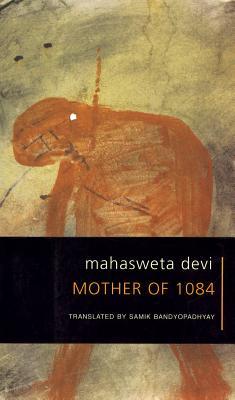It is odd to be writing this just as I learn that Mahasweta Devi has passed away. Almost as though my review now represents her entire body of work (which I have not yet explored) or must serve as a eulogy for a writer I've barely been introduced to. And made more complicated by the content of Mother of 1084, a book that deals so centrally with life and death and politics. Can I do the book justice in any way? Nope. I cannot.
Mother of 1084 (translated by Samik Bandyopadhyay) is one of only a handful of books I've read in recent years that I can classify as being exactly the right length. It is that rare novella that feels as fully fleshed out as a sprawling novel, without losing its narrative thread or themes. At 127 pages, Mother of 1084 feels like a several-hundred-paged novel, exploring mother Sujata's emotional response to the death of her Naxalite son Brati. There were no dangling threads or unexplored avenues that felt like missed opportunities, nor were there stories that dragged or stumbled.
It's a political text. Not simply the Naxalite/communist politics and denunciation of the bourgeois response, but in the way it highlights Sujata's role as mother and wife as well. Mother of 1084 emphasizes small moments in a woman's ordinary life, the erasure of her self and beliefs in favor of outward image. Even the title hints at this, reducing Sujata not simply to Brati's mother, but the mother of his corpse.
The writing is simple, disjointed at times, and loosely enticing. While this is far from my favorite style, I couldn't help but be sucked into the story, especially in the way the simple writing seemed to draw out both the narrative and the reading experience itself. Simplicity in this case bred a greater complexity, growing more unsettling as the story progressed.
It's a powerful story, and as I said: I cannot do it justice. It's not a book where I can point to something in particular that made it work, just the overall sensation at the end that I gained something very important. If literature is meant to teach and open our eyes, Mother of 1084 did that admirably, both in terms of historical events and contexts, as well as emotional resonance and contemplation on motherhood. This is a larger book than it presents itself, and I can only recommend it.


No comments:
Post a Comment
Anonymous comments have been disabled due to an increase in spam. Sorry!